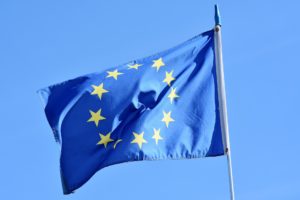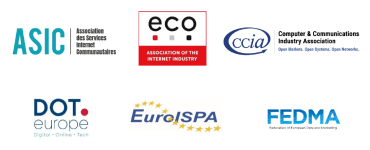Highlights from the Past Week
CW 41 / Monday, 10 to Thursday, 13 October: Political Group and Committee Meetings Week (Brussels);
CSAM I – COMMISSIONER JOHANSSON AT THE LIBE COMMITTEE: Last week, Commissioner Johansson presented her proposal for the CSAM Regulation and discussed it with MEPs in the Civil Liberties Committee. (see also Euractiv)
Following the Commission’s presentation, rapporteur Javier Zarzalejos (EPP, Spain) took the floor to underline the complexity of the dossier, insofar as it poses a challenge to law enforcement agencies, civil society, parents and legislators.
In addition to the scope of the Regulation, the rapporteur highlighted four areas on which further discussions should focus:
- the selection of technologies to be applied to the different elements of CSAM;
- the content-related and procedural safeguards to be applied;
- the procedure leading to a detection order; and
- the establishment and functions of the C
In addition, the rapporteur expressed his concern about a possible regulatory gap between the entry into force of the proposed Regulation and the expiry of the transitional measure. In conclusion, MEP Zarzalejos asked the Commission to clarify its approach on the issue of encryption.
Meanwhile, the LIBE Committee confirmed that MEPs Annalisa Tardino (ID, Italy) and Vincenzo Sofo (ECR, Italy) had been selected as shadow rapporteurs for their respective political groups.
CSAM II – COUNCIL DISCUSSIONS CONTINUE: At the meeting of the Council’s Law Enforcement Working Group (Police) scheduled for 19 October, the attachés will continue their review of the Commission’s proposal.
In particular, the revised Articles 7-10 of Chapter II on the obligations of providers of relevant information society services to prevent and combat child sexual abuse on the Internet are on the agenda. But also the revised Articles 25-39 (PDF) of Chapter III on supervision, enforcement and cooperation will be discussed.
WORK PROGRAMME 2023 – LEAK OF THE COMMISSION’S DRAFT: The EU Commission will present its work programme for the coming year on Tuesday. A draft of the programme was leaked to the media in the last few days (annex, communication).
For example, the EU executive will present a new radio spectrum policy programme in the telecom sector, binding legislation planned for the year’s third quarter.
The Commission is also preparing a mobility package that, by the first half of next year, will include a common European mobility data space, one of the sectorial data spaces of the EU’s Data Strategy, and an EU regulatory framework for hyperloop – a legislative initiative to be presented in the third quarter.
In terms of online content, the programme entails a recommendation on piracy of live content for the second quarter.
Regarding fighting child sexual abuse, the intention is to revise the existing directive by the third quarter of 2023. The initiative will complement the proposed regulation to fight Child Sexual Abuse Material presented last May.
A further dossier to be announced by von der Leyen during her annual speech concerns virtual worlds, such as metaverses. A non-legislative initiative on this is planned for the second quarter of next year.
Open legislative projects identified as priorities include the AI Liability Directive, the Single Market Emergency Instrument, the Cyber Resilience Act, the Data Act, the Secure Connectivity Initiative, the Chips Act, the European Digital Identity, the Platform Workers Directive, the AI Act and the ePrivacy Regulation. (see Euractiv or Contexte, paywall, FR)
CYBER RESILIENCE ACT – PROVISIONAL ASSIGNMENT IN EP TO LIBE: The leading role on the CRA has been assigned to the Industry Committee (ITRE) in a provisional decision, with the Civil Liberties Committee (LIBE) and Single Market Committee (IMCO) to present an opinion. (see EP Legislative Observatory)
Although the dossier focuses strongly on industrial processes, IMCO might be tempted to claim exclusive or at least shared competence for the consumer protection aspects. In ITRE, the rapporteur will be from Renew and the group will make its decision next Wednesday. For the Socialists, Eva Kaili has been appointed as shadow rapporteur. The EPP and the Greens have yet to confirm their choice.
ARTIFICIAL INTELLIGENCE – EDPS PRESENTS RECOMMENDATION FOR NEGOTIATIONS IN THE COUNCIL OF EUROPE: The European Data Protection Supervisor has published an opinion (PDF) on the Convention on Artificial Intelligence and Human Rights under the auspices of the Council of Europe. In this opinion, the EDPS sets out recommendations for what the EU should try to achieve: ensuring that the agreement complies with EU data protection rules; prohibiting AI tools “posing unacceptable risks” to individuals (such as social scoring, biometric identification in publicly accessible spaces, categorization of individuals, and emotion categorization); and requiring AI systems to be transparent, explicable and verifiable.
Various media outlets have reported that attachés to the Council of Europe’s Telecom Working Party, which is responsible for AI issues, decided last week to give the Commission a partial mandate to negotiate the Council of Europe Convention, but that member countries will remain free to negotiate individually on some issues, notably national security. (see Luca Bertuzzi, EURACTIV; Politico Pro, paywall)
DIGITAL MARKETS ACT – REGULATION PUBLISHED IN THE OFFICIAL JOURNAL: Following its adoption by the Council and the Parliament, the Regulation (EU) 2022/1925 on contestable and fair markets in the digital sector has now been published in the Official Journal of the EU on 12 October 2022. It will enter into force twenty days after its publication, i.e. on 1 November 2022.
However, Article 3(6) and (7), introducing rules on the designation of gatekeepers, as well as Article 40, establishing a high-level group for the Digital Markets Act, Articles 46-50, concerning the Commission’s adoption of implementing provisions, guidelines, standardisation requests, delegated acts, and Article 50, regulating the procedure of the Digital Markets Advisory Committee, will apply from 1 November 2022.
Moreover, Articles 42 and 43 on representative actions and on the reporting of breaches and protection of reporting persons will apply from 25 June 2023.
Meanwhile, the German Ministry of Economics announced a consultation in which companies and individuals can report “conduct of major digital players” that “the EU Commission should address with the DMA as a matter of priority” to the Ministry. (see German Federal Ministry for Economic Affairs and Climate Action (BMWK) press release – DE)
ARTIFICIAL INTELLIGENCE – FURTHER TIMETABLE: The negotiations on the AI Act still have numerous further negotiation dates. This is according to a list made public last week by Axel Voss’ assistant Kai Zenner. The 9th “technical meeting” is to take place on Wednesday. The 17th is scheduled for 28 November. In between, a meeting of the shadow rapporteurs is to be held on 9 November.
AI LIABILITY – PRESENTATION AT THE COUNCIL: At the Justice and Home Affairs Council meeting last week, Commissioner Reynders gave a short presentation on the proposed AI Liability Directive.
He stressed that investment in artificial intelligence (AI) and its acceptance in society go hand in hand with legal certainty and trust.
The Commissioner outlined that the proposal aims to protect all victims suffering harm caused by AI and to provide them with the same level of protection as victims of other technologies. To this end, the proposal covers many types of harm that are currently being compensated for under national legislation, such as personal injury, damage to property or damage due to discrimination.
The proposal also foresees a reversal in the burden of proof, which will relieve victims and protect them from having to explain how AI works.
Commissioner Reynders also pointed out that victims would be able to obtain information on AI systems with high risk, with sensitive information such as trade secrets protected by mandatory legal protection.
The Working Party on Civil Law Matters (JUSTCIV) will hold its first discussion on the text on 28 October.
EU CHIPS ACT – CONSULTATION ON THE SEMICONDUCTOR VALUE CHAIN: The European Commission, together with the 27 Member States, has launched a consultation on the semiconductor value chain. The consultation seeks to gather views, evidence and data from both companies active in the semiconductor supply chain and companies which rely on semiconductors to deliver their products or services. Based on the results of an earlier survey, this consultation, open until 11 November, is a first step towards establishing a precise assessment of risks, increasing transparency of the value chain and resilience against potential disruptions, as well as enabling decision-makers to properly respond to semiconductor shortages. (see COM press release)
RESILIENCE OF ESSENTIAL INFRASTRUCTURE – LIBE ENDORSES TRILOGUE AGREEMENT: In December 2020, the EU Commission presented its proposal for a directive on the resilience of essential infrastructure. Now the Civil Liberties Committee in the European Parliament has confirmed the compromise reached with the Council in June. Confirmation in the plenary is planned for 21 November. (see EP press release)
INTERNET INFRASTRUCTURE LEVY – CRITICAL BEREC OPINION: The EU’s drive to require big-tech platforms to contribute to telecoms costs could “present various risks for the Internet ecosystem”, says a preliminary opinion from the EU’s telecoms regulator BEREC.
In its opinion, BEREC states that no evidence has been found “that such mechanism is justified given the current state of the market”. The opinion goes on to state that BEREC considers that “the ETNO members’ proposal could present various risks for the Internet ecosystem.”
As part of 15 findings in the report, BEREC said there was no evidence of large online platforms “free-riding” in the networks and that consumer usage generally drives the cost of providing access networks.
Relevant Publications, including from the EP Think Tank:
- Policy Departments’ Monthly Highlights – October 2022 (At a Glance)
- Question time: Protecting critical infrastructure in the EU and countering hybrid attacks (At a Glance)
Outlook for the Current Week
You can find a list of the upcoming dates of the European Parliament here and an overview of the plenary sessions week here. The meeting calendar for 2022 can be found here (PDF).
An overview of the most important dates of the Council week can be found here and the meeting calendar can be accessed here. You can access the official calendar of the Czech Presidency here (PDF).
Included among these dates are:
Summits and Ministerial Meetings:
- Foreign Affairs Council, Monday, 17 October – Agenda, A Items;
- Agriculture and Fisheries Council, Monday, 17 and Tuesday, 18 October – Agenda, A Items;
- General Affairs Council, Tuesday, 18 October – Agenda, Background Brief;
- European Council, Thursday, 20 and Friday, 21 October – Agenda;
- Informal Meeting of Transport Ministers, Thursday, 20 and Friday 21 October;
Preparatory Bodies:
- Working Party on Competitiveness and Growth (Industry) (incl. Chips Act), Monday, 17 October and Wednesday, 19 October;
- Working Party on Judicial Cooperation in Criminal Matters (COPEN), Monday, 17 October and Wednesday, 19 October;
- Working Party on Competitiveness and Growth (Internal Market) (incl. Ecodesign), Monday, 17 October;
- Working Party on Intellectual Property, Monday, 17 October;
- Working Party on Telecommunications and Information Society, Tuesday, 18 October;
- Working Party on Hybrid Threats, Tuesday, 18 October;
- Law Enforcement Working Party (Police) (incl. CSAM), Wednesday, 19 October;
- Horizontal Working Party on Cyber Issues, Wednesday, 19 October;
- COREPER I, Wednesday, 19 October and Friday, 21 October;
- COREPER II, Monday, 17 October and Wednesday, 19 October;
Information on the weekly Commission meeting can be found on the Commission’s website in the preview (PDF) or (at short notice) in the current agenda.
The following topic is on the agenda for the coming week:
- 2023 Commission Work Programme
You can find the judicial calendar of the ECJ here.
European Parliament Committees
CW 42 / Monday, 17 to Thursday, 20 October: Plenary Sessions Week (Strasbourg);
LIBE Committee (Civil Liberties)
Current Meetings
- None
Further Meetings (Calendar)
- Tuesday, 25 October 2022, 14.30-18.30 (Brussels)
JURI Committee (Legal Affairs)
Current Meetings
- None
Further Meetings (Calendar)
- Wednesday, 26 October 2022 (Brussels)
- Thursday, 27 October 2022 (Brussels)
Dossiers Timetable (5 October 2022)
ITRE Committee (Industry)
Current Meetings
- None
Further Meetings (Calendar)
- Wednesday, 26 October 2022, 9.00-12.30 and 14.30-18.30 (Brussels)
- Thursday, 27 October 2022, 9.00-12.30 (Brussels)
Dossiers Timetable (5 October 2022)
IMCO Committee (Internal Market)
Current Meetings
- None
Further Meetings (Calendar)
- Wednesday, 26 October 2022, 9.00-12.30 and 14.30-18.30 (Brussels)
- Thursday, 27 October 2022, 9.00-13.00 (Brussels)
Dossiers Timetable (September 2022)
CULT Committee (Culture)
Current Meetings
- None
Further Meetings (Calendar)
- Monday, 24 October 2022 (Brussels)
- Tuesday, 25 October 2022 (Brussels)
PEGA Committee (Pegasus Committee of Inquiry)
Current Meetings
- Thursday, 20 October 2022, 9.00-12.00 (Brussels)
Excerpt from the draft agenda
…
- Hearing on “The impact of Spyware on Fundamental Rights”
…
Further Meetings
- Wednesday, 26 October 2022, 9.00-12.30 and 15.00-17.00 (Brussels)
- Thursday, 27 October 2022, 9.00-12.30 (Brussels)
INGE2 Committee (Special Committee on Foreign Interference)
Current Meetings
- Wednesday, 19 October 2022, 16.00-17.00 (with D-US, Brussels)
Excerpt from the draft agenda
The joint D-US/ING2 meeting will take place on the topic of “The potential for transatlantic cooperation in the fight against disinformation”.
Further Meetings (Calendar)
- Thursday, 27 October 2022, 14.30-18.30 (Brussels)
Further Parliamentary Calendar Dates
- CW 43 / Monday, 24 to Thursday, 21 October: Committee Meeting Week (Brussels);
- CW 44 / Monday, 31 October to Friday, 4 November: Green Week (no meetings);
- CW 45 / Monday, 7 to Thursday, 10 November: Mini-Plenary Sessions Week (Brussels);




